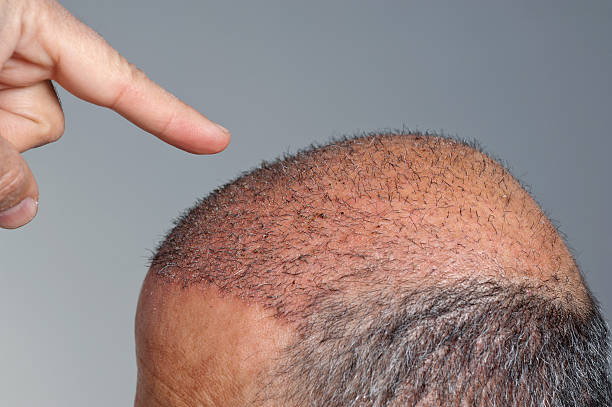Top Scalp Psoriasis Treatments in the United States for 2025: Easing Itching, Flaking, and Inflammation
Scalp psoriasis affects many people with psoriasis, often causing intense itching, flaking, and inflammation that can lead to temporary hair thinning. This article summarizes evidence-based treatments available in the United States to help safely manage these symptoms in 2025.

What Is Scalp Psoriasis and What Are Its Symptoms?
Scalp psoriasis is a long-term autoimmune disorder where the immune system accelerates skin cell production, resulting in thick, scaly patches on the scalp. These plaques typically appear reddish or salmon-colored on lighter skin, and purple or gray on darker skin tones. Common symptoms include:
- Severe itching and tenderness
- Flaking and scaling that looks like dandruff but is often denser
- Redness and discomfort due to inflammation
- Temporary thinning or loss of hair caused by scratching and irritation
Though scalp psoriasis itself doesn’t cause permanent hair loss, repeated scratching and inflammation can damage follicles and cause shedding. Effective management focuses on decreasing inflammation, easing itching and scaling, and encouraging hair regrowth.
Primary Treatments: Topical Options
Topical therapies are often the first step in managing scalp psoriasis for many people in the U.S. These treatments are directly applied to the scalp and include:
Medicated Shampoos
- Coal Tar Shampoos: Coal tar slows skin cell growth while reducing inflammation and itching. These shampoos, gels, and creams are available both over the counter (OTC) and by prescription. Typically, products are left on the scalp for several minutes before rinsing.
- Salicylic Acid Shampoos: Acting as a keratolytic agent, salicylic acid helps loosen and remove scales, enhancing the effectiveness of other topical therapies. They are usually used a few times weekly.
Topical Corticosteroids
To relieve itching and inflammation, high-potency corticosteroid shampoos or solutions (like clobetasol propionate) are often prescribed, initially applied once or twice daily with gradual tapering to maintenance dosing. These reduce immune activity in the skin but must be used as directed to avoid side effects such as skin thinning.
Vitamin D Analogs and Additional Topical Treatments
Vitamin D analogs help regulate skin cell growth and are often prescribed for moderate scalp psoriasis. Other topical agents like retinoids or calcineurin inhibitors may also be used under medical supervision.
Phototherapy and Light-Based Options
When topical treatments alone don’t suffice, phototherapy provides a focused option. Treatments for the scalp include:
- Excimer Laser Therapy: This laser targets specific scalp plaques with intense UVB light, sparing surrounding healthy skin.
- UV Comb Devices: These handheld comb-like tools emit UV light over broader scalp areas, reducing skin cell turnover and scaling.
Multiple treatment sessions over several weeks are typically needed for best results. Patients with dense hair may find parting hair helpful to ensure adequate light exposure.
Systemic Treatments for Moderate to Severe Cases
For moderate to severe scalp psoriasis or cases unresponsive to topical and phototherapy, systemic medications may be advised, including:
- Oral Medications: Agents such as methotrexate, cyclosporine, or acitretin (a vitamin A derivative) suppress immune function and decrease skin cell production. Regular monitoring is essential to manage side effects.
- Biologic Therapies: These newer injectable or infused drugs specifically target immune pathways involved in psoriasis. Biologics often provide rapid symptom relief but require close dermatologist supervision due to immune system effects.
Addressing Hair Loss and Maintaining Scalp Health
Hair loss from scalp psoriasis tends to be temporary. To promote hair regrowth:
- Avoid harsh hair treatments like dyes, sprays, and heat styling that can irritate the scalp.
- Use mild, moisturizing shampoos and conditioners.
- Apply scalp moisturizers or oils to keep the skin hydrated and lessen itching.
- In dry climates, consider using humidifiers to maintain scalp moisture.
Consistent inflammation control is vital to protect hair follicles and support regrowth.
Distinguishing Scalp Psoriasis from Other Scalp Disorders
Since symptoms such as itching and flaking can also stem from dandruff or seborrheic dermatitis, getting a precise diagnosis by a dermatologist is important. Psoriasis plaques are generally thicker, drier, and sometimes extend beyond the hairline, whereas seborrheic dermatitis tends to cause oilier scales confined to the scalp.
In some cases, a biopsy may be needed to confirm the diagnosis. Accurate identification ensures appropriate and effective treatment.
Lifestyle Considerations and Preventive Steps
Certain factors like stress, infections, scalp injuries, heavy alcohol use, and sunburn can worsen scalp psoriasis. Managing these triggers may decrease flare-ups.
Vitamin D deficiency has been linked to increased psoriasis severity, so checking vitamin D levels and supplementing under medical advice can support treatment.
The Value of Professional Guidance
Early evaluation by dermatologists enables individualized treatment plans customized to symptom severity and response. Additionally, support groups and educational materials provide emotional support and help improve treatment adherence.
Following medical advice combined with lifestyle adjustments can enhance symptom control and overall quality of life for those dealing with scalp psoriasis in the United States.
Sources
- National Psoriasis Foundation – “Best Psoriasis Shampoos”
- Mayo Clinic – “Psoriasis: Diagnosis and Treatment”
- WebMD – “Scalp Psoriasis Overview and Treatments”
- American Academy of Dermatology Association – “Scalp Psoriasis: Treatments and Care”
Disclaimer: Accessibility and availability of the treatments mentioned may differ depending on location and healthcare providers in the United States. Always consult a qualified healthcare professional before starting or changing medication regimens.




